The Structure & Process Partner Meeting is one of our favourite formats for joyful, meaningful collaboration.
The main ingredients have remained mostly the same for the past few years: an agile agenda, a dedicated meeting facilitator, clarity on work modes, space and time for personal exchange, the pile of success, good food… – you can find details about all these elements here.
More recently, we have been increasingly inviting external guests, which lead to Open Partner Meetings: In these, we collaborate with clients, colleagues, applicants, friends and other interested (and interesting!) people.
During the last Open Partner Meeting (Feb 27 – March 2) in Dresden, another element emerged in the form of a question:
What is our practice?
practice /ˈpraktɪs/ noun
- The actual application or use of an idea, belief, or method, as opposed to theories relating to it.
- The customary, habitual, or expected procedure or way of doing of something.
- Repeated exercise in or performance of an activity or skill so as to acquire or maintain proficiency in it. (Source)
We noticed that the practices at Structure & Process can basically be summarised in three categories: personal organization/productivity, community building and governance.
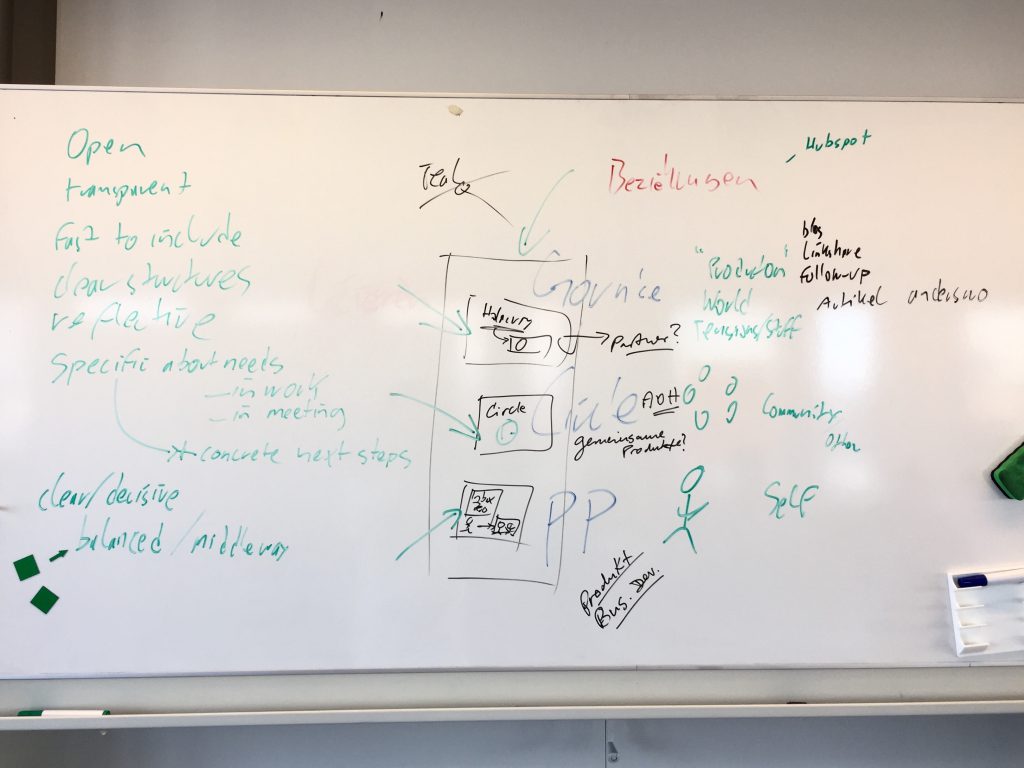
Our personal productivity practices enable us to do good work in the first place: host yourself first, to make yourself available for collaboration.
Then we come together and form a community: We build personal relationships and discover our shared interests as the basis for co-creation. We refine our purpose as an organisation, grounded in community.
And then, to function smoothly as collaborators, we build governance systems/practices that allow us to orchestrate and focus our efforts.
Here is how some of our practices showed up at the last Open Partner Meeting:
Personal Organisation
- “What do I need?” – Our favourite starting point for solving problems and getting stuff done. Turns out that asking this question is a practice in and of itself. The answers become part of the agenda.
We ask “What do I need?” (or, when facilitated: “what do you need?”), not: “what do we need? What should we do?” We make our work personal.
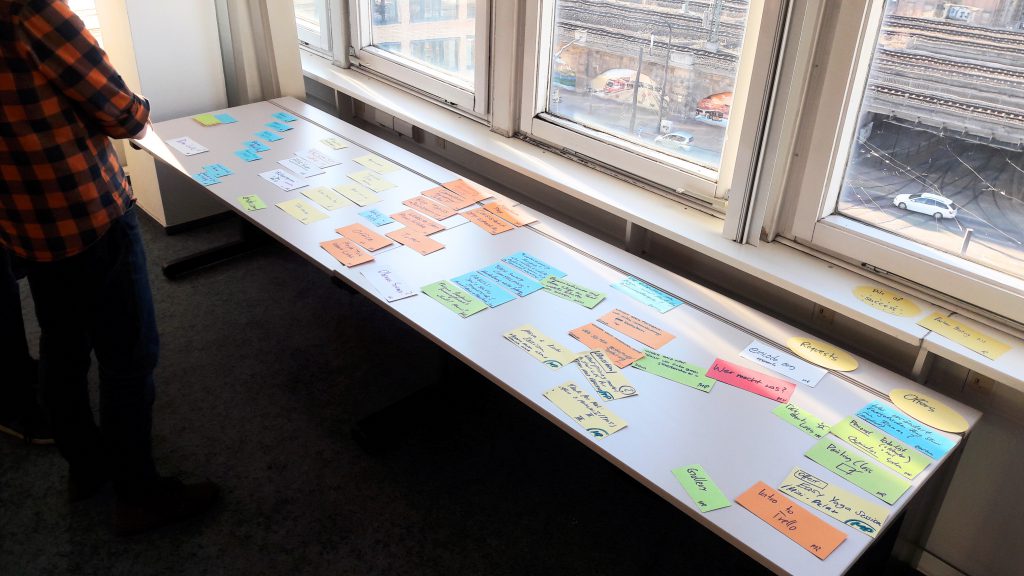
- Capture, process, do – whenever a meeting or session leads to actionable items, the habit is to capture those items, process them to a place that makes sense (personal todo list, shared Trello board) and then do it when the time is right. Things don’t get lost, and action happens at the right place and time.
Knowing that you and your partners run on some version of this system builds trust and allows being present in the moment.
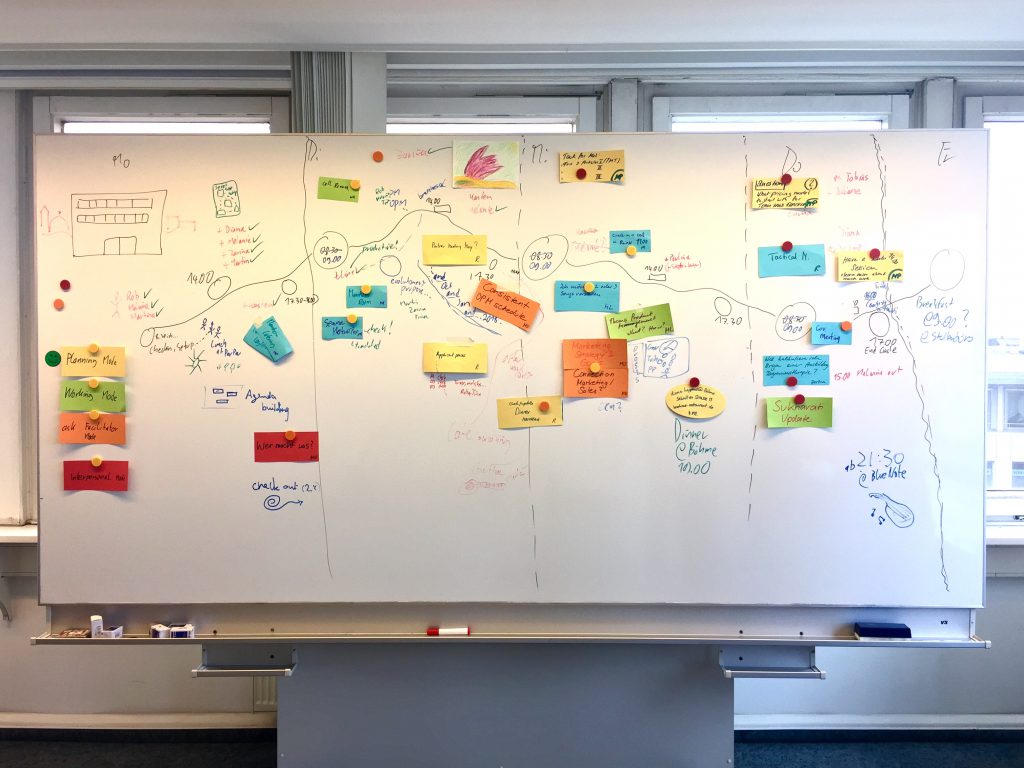
Community Building
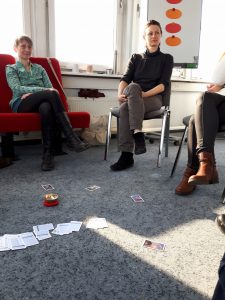
- Circles – every morning we check in together as one coherent group of individuals. At the end of the day we check out again, sharing whatever moves us at that particular time.
- We prioritize relationships and quality of life – during Partner Meetings there’s plenty of time for food, music and good conversation :-)
Governance:
- Whenever we go into planning mode (“what is the next thing to do now?”) there is no consensus building on the agenda point that everyone wants to do, but rather taking the initiative to host a session and then seeing who shows up (open-space-style).
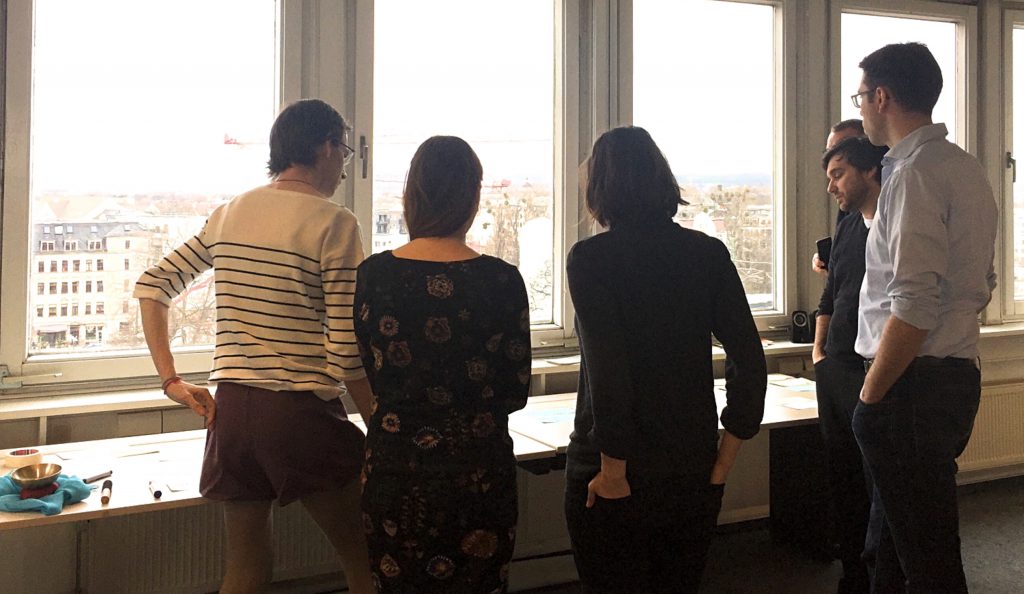
- We are very clear on our individual roles and accountabilities, which makes task assignment easy, efficient and relaxed.
- One of our Holacratic Governance Meetings took place during this week. Guests could watch and ask questions about the process afterwards.
Practice with us!
The next Open Partner Meeting will happen on October 24-26 2017, again in Dresden. Our guests typically get more clarity on their questions related to organisational development, collaboration, personal path in business/life and generally have a good time… They explore their own projects, or collaborating with Structure & Process. Some have found jobs and love! ;-)
You are most welcome! (Sign up to our newsletter to receive an invite in time!)
Now we’d like to hear from you…
- What is the practice that informs your work?
- What do you find yourself doing again and again?
- How do you apply the ideas and theories that guide your work in practice?
Let us know in the comments!
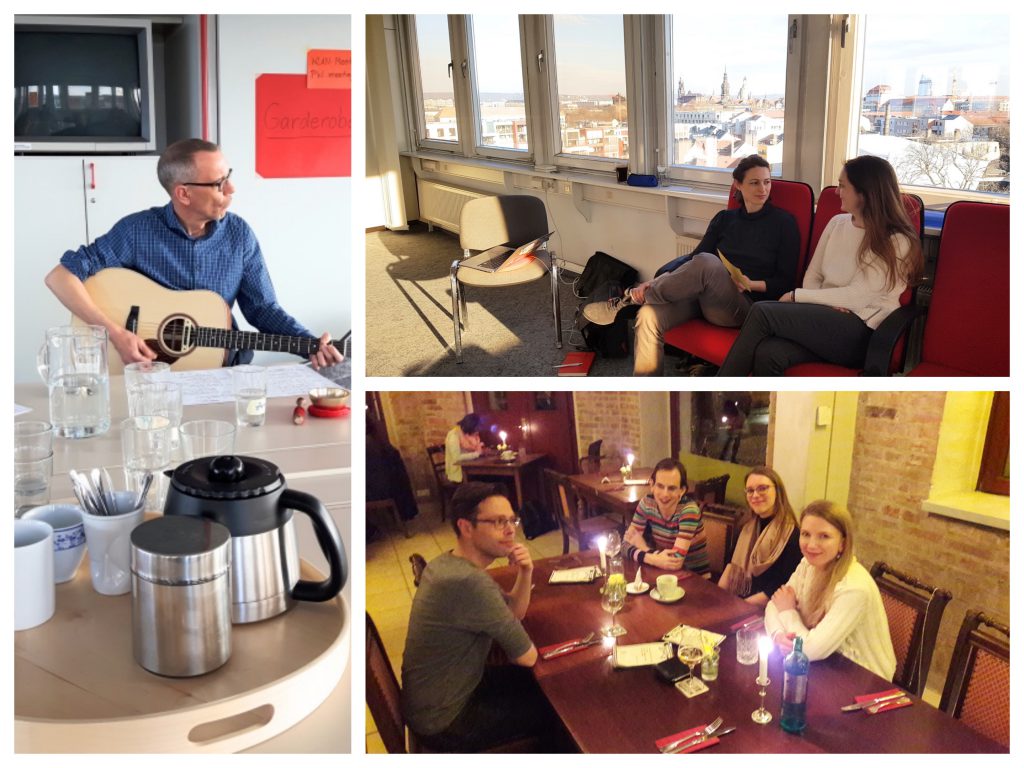




 We changed our company purpose
We changed our company purpose